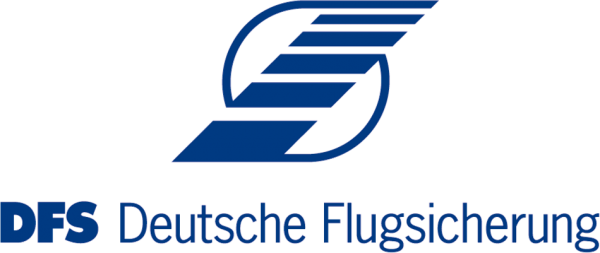Air Traffic Management Consultancy and Solutions
| Company | DFS Deutsche Flugsicherung GmbH |
|---|---|
| Date | 07.05.2013 |
The Frankfurt airport operator, Fraport, and the German air navigation service provider, DFS Deutsche Flugsicherung, sign a cooperation agreement for the satellite-based precision approach system GBAS
Today, the Chairman and Chief Executive Officer of DFS Deutsche Flugsicherung GmbH, Prof Klaus-Dieter Scheurle, and the Chairman of the Executive Board of Fraport AG, Dr Stefan Schulte, signed a cooperation agreement for the implementation of the satellite-based precision approach system GBAS (ground-based augmentation system) at Frankfurt Airport. It will enable this technology to be used for the first time at an international hub in Europe as of 2014.
"By signing this agreement, we are investing in innovative technology and procedures here at Frankfurt Airport as we have done in the past. It should help us to continue to reduce the impact of flight operations on the area surrounding the airport. Once again, it also shows the role model character of Frankfurt Airport in the international arena. We are implementing another item of the set of measures laid down by the Alliance for Noise Abatement," stressed Fraport CEO Schulte.
Fraport and DFS are hopeful that the new landing system will allow for segmented and/or curved approaches in the future, which would have the positive effect of reducing aircraft noise even in areas under the final approach path. It would also have positive effects on the capacity of Frankfurt Airport as well as on cost-effectiveness.
"With GBAS, DFS is advancing a future technology and is an innovation pioneer worldwide," explains DFS CEO Klaus-Dieter Scheurle. "With this technology, we are making an important contribution to increasing efficiency and reducing noise for approach procedures in the long term."
The new system makes it possible to increase the glide slope angle at all runways from the current 3 degrees to 3.2 degrees. This has only been possible up until now on the new landing runway northwest. To use the full potential of the system, it will be necessary to equip airplanes as well as install facilities on the ground. The aircraft types capable of using GBAS at the moment are Airbus A380 and Boeing 747-8. The costs for the installation and operation of the ground station will run to about five million euro.
The new technology has many advantages over the approach procedures currently used at Frankfurt Airport. Satellite navigation based on the US Global Positioning System (GPS) has a range of accuracy of about plus/minus ten metres. This level of accuracy is not good enough for precision landings in poor visibility. However, with the aid of a GBAS ground station, the required criteria can be fulfilled. The approaching aircraft can determine its position exactly and thus conduct its final approach safely and precisely. The signals transmitted by the satellite are received by the GBAS station which compares them with its own position and transmits a corrected signal to the landing aircraft along with approach path coordinates. The advantage of GBAS is primarily the number of different approach procedures that can be used with just one station.
GBAS provides digital guidance for precision approaches using the Differential Global Positioning System (DGPS) procedure. The system boosts the accuracy and integrity of GPS by transmitting corrections to the aircraft. In the future, GBAS may completely replace the instrument landing system (ILS) when all aircraft are equipped with the appropriate on-board receivers. The system offers a large number of advantages compared to ILS. Up to 49 arrivals, destined for various runways, can be supported by just one GBAS station. In addition, the system does not need to be checked by flight inspection nearly as often as an ILS.
Contact
Aeronautical Solutions
Am DFS-Campus 10
Langen
Germany
D-63225
- +49 (0)6103 707-2051

